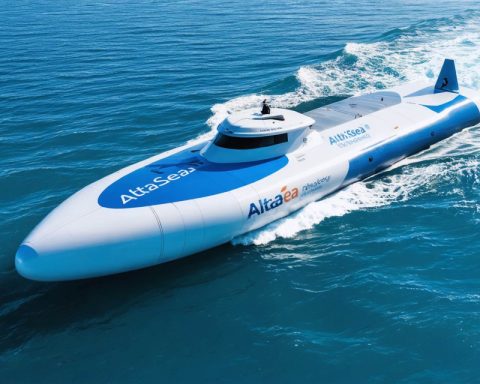In a groundbreaking initiative, Saudi Arabia’s Transport General Authority (TGA) has embarked on a new journey with the launch of the nation’s first hydrogen-powered taxi pilot program. This ambitious project marks a significant leap toward a cleaner, greener future and aligns with the kingdom’s vision for sustainable urban transport.
The initiative is part of a broader national strategy designed to modernize the transportation sector through the adoption of advanced, clean-energy technologies. By introducing hydrogen taxis, the TGA aims to drastically cut down carbon emissions and reduce dependency on conventional fuel-driven vehicles. The program promises to transform urban mobility with high-performance, eco-friendly vehicles that operate seamlessly and silently, ensuring minimal noise pollution.
These hydrogen-powered vehicles can travel an impressive 350 kilometers on a single charge and operate efficiently for up to eight hours daily. This makes them an attractive and sustainable alternative to traditional taxis, catering to the growing demand for environmentally conscious transportation options.
A pivotal aspect of this initiative is the strategic collaboration between TGA and Abdul Latif Jameel Company. This partnership underscores a mutual commitment to fostering innovation and advancing research in green technologies. Both entities are working in tandem to propel eco-friendly transport solutions and extend the benefits of clean energy across the kingdom.
As Saudi Arabia forges ahead with its National Transport and Logistics Strategy, this pilot program stands as a testament to the country’s dedication to sustainable development and its aim to lead by example in the global shift toward clean energy.
The Hidden Impact of Hydrogen: How Saudi Arabia’s Taxi Initiative Could Change the World
Saudi Arabia’s recent launch of a hydrogen-powered taxi pilot program is a bold step towards a sustainable future, but its implications reach far beyond innovative transport. This initiative introduces new dynamics that could redefine energy consumption and international relations, while also raising intriguing questions about technological advancement and economic policy.
What Sets Hydrogen Apart?
Hydrogen fuel cells offer remarkable advantages over traditional gasoline and more popular electric vehicles. Unlike batteries that take hours to charge, hydrogen cars refuel in minutes and offer longer travel ranges. However, the development and efficiency of this technology also involve intricate scientific and economic challenges. International Energy Agency notes that while hydrogen is abundant, extracting it efficiently and sustainably remains a costly endeavor, often relying on non-renewable sources like natural gas.
The Socioeconomic Ripple Effects
The introduction of hydrogen taxis is more than an environmental endeavor; it holds potential socioeconomic benefits. For communities, particularly those in urban areas, this technology can provide cleaner air and reduce noise pollution, promoting healthier living environments. Economically, the widespread adoption of hydrogen vehicles could stimulate job creation in sectors related to clean energy production and technology development, compelling countries to invest in educational programs to prepare a skilled workforce for this industry.
Could hydrogen taxis fuel a shift in employment trends and educational priorities? Surely, as countries pivot towards green technologies, they will need to reassess their workforce development strategies.
Global Implications: Is a Hydrogen Economy Realistic?
With Saudi Arabia setting a precedent, could other nations follow suit? Transitioning to a hydrogen economy involves overhauling entire infrastructure systems to accommodate hydrogen production, storage, and fueling needs—a costly endeavor that requires international cooperation and significant investment. Countries with abundant natural resources, like Saudi Arabia, are in a unique position to spearhead these advancements.
Yet, is such a transition equitable for nations with fewer resources? The push for hydrogen may widen the gap between technologically advanced countries and those trailing behind, sparking debates over economic inequality and energy accessibility.
Potential Controversies
One intriguing controversy concerns the environmental impact of hydrogen production. Though hydrogen cars emit only water vapor, creating hydrogen fuel often involves fossil fuels, which raises questions about the true sustainability of this energy source. The development of “green hydrogen,” produced using renewable energy, is still in nascent stages and requires significant investment.
Furthermore, geopolitical tensions might arise from a scramble for technological supremacy and control over new hydrogen fuel markets. How will these shifts impact global alliances and trade agreements? World Resource Institute explores potential international conflicts over water resources essential for hydrogen production, especially in arid regions.
Conclusion
Saudi Arabia’s hydrogen-powered taxi initiative is a monumental step forward in sustainable transport, but it is merely the tip of the iceberg. Its broader impacts on community life, global energy policies, and geopolitical landscapes highlight the complexities of transitioning to cleaner energy. As more countries join this movement, the implications on all levels will be profound, shaping our world’s future.














